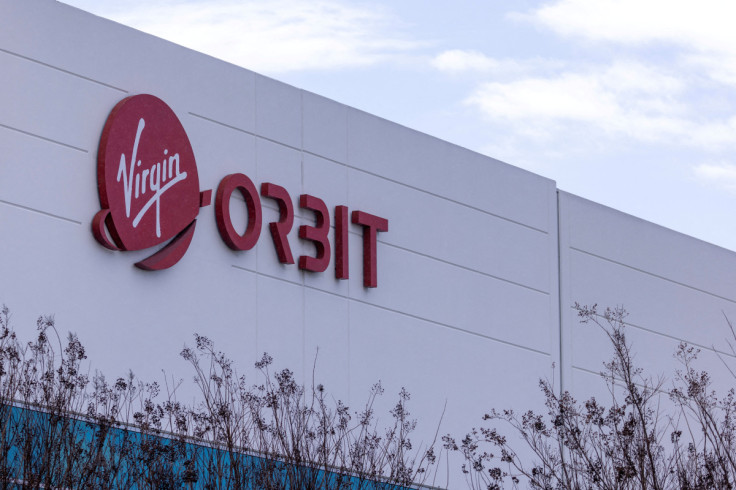Virgin Orbit Bankruptcy: Departing COO Targets Leadership In Apology Letter To Employees
KEY POINTS
- Departing COO Gingiss apologized for not being able to convince leadership to 'take a different path'
- He said employees 'did not have the leadership' to demonstrate their full potential
- Virgin Investments will inject $31.6 million to keep the company afloat while searching for a buyer
Virgin Orbit's outgoing Chief Operating Officer (COO) Tony Gingiss called out the space company's leadership in a departure and apology email to employees this week as the Richard Branson company filed for bankruptcy following its failure to secure the necessary funding to continue operations.
"You deserved better than this!" Gingiss wrote to employees in an email Monday, which was published by CNBC on Tuesday. The outlet noted that it appears Gingiss was calling out Virgin Orbit's CEO Dan Hart when he apologized to employees that they "have not heard from the person who should be saying it."
Gingiss offered multiple reasons for his apology letter to employees. "You simply did not have the leadership or opportunity to demonstrate to the world what you can fully do and how this product could be an enduring force in the market," he wrote, adding that he was sorry for not being able "to convince our leader and board to take a different path to give us more time to figure things out."
Gingiss: “I want to say something to you, that you have not heard from the person who should be saying it, so I will… I’m sorry and I apologize.”
— Michael Sheetz (@thesheetztweetz) April 4, 2023
His full email to Virgin Orbit: https://t.co/kwSebMtHOK pic.twitter.com/PsQKKlGlax
In a securities filing last week, it was noted that Gingiss was among the 675 employees who were laid off after the company failed to secure funding.
Last Thursday, Hart told employees in a meeting that "immediate, dramatic and extremely painful changes" were coming, further revealing that about 90% of Virgin's entire workforce will be let go. The company previously implemented an operational freeze and placed most employees on unpaid furlough.
A person familiar with the mass layoffs at Virgin Orbit told Financial Times that Branson himself has come to the rescue of the burned-up company and injected nearly $11 million to help pay for the severance of departing employees.
CNBC previously reported that discussions to secure funding with venture capitalist Matthew Brown collapsed over the weekend even after Brown said earlier that he was in the final stages of discussions for a possible investment in the space launching service company.
Virgin Orbit to Continue Sale Process Under Chapter 11 Protection. Read more: https://t.co/MhsPTxqUQF pic.twitter.com/xOMMXEC0oK
— Virgin Orbit (@VirginOrbit) April 4, 2023
Virgin filed for Chapter 11 bankruptcy at the U.S. Bankruptcy Court for the District of Delaware on Tuesday. "At this stage, we believe that the Chapter 11 process represents the best path forward to identify and finalize an efficient and value-maximizing sale," Hart said in a statement regarding the filing.
One of Virgin's sister companies, Virgin Investments, will inject $31.6 million to help the company operate continuously as it searches for a buyer, as stated in a press release Tuesday.
Earlier this year, Virgin's rocket launched from Cornwall, England, failed to reach orbit. The launch was supposed to be Britain's first rocket launch.
Virgin used a converted Boeing 747 jet called Cosmic Girl to carry the LauncherOne, which held multiple satellites at the time, into space. The rocket was supposed to detach and fire its engine then move upward into orbit before the satellites are released into space. Since the failed launch, Virgin has been scrambling to obtain funding.
However, the New York Times noted that the failed launch may have raised doubts about Virgin's rocket-launching process, which was unlike conventional systems like the ones Elon Musk's SpaceX used. Virgin's method was "likely to be more of a niche product than those of competitors," the outlet wrote.
After news of Virgin's bankruptcy filing emerged, share prices plummeted by 17% Tuesday, bringing the company's valuation to less than $60 million. The said share price nose dive accounts for a 95% decrease from Virgin's peak valuation of about $3.5 billion in January 2022, as per The Guardian.
Jim Cantrell, chief executive of rocket startup Phantom Space, said Virgin's launch method required lots of money compared to that of its industry rivals. "It's a beautiful thing, but it's expensive," he pointed out. While SpaceX charged $3 million per launch, Virgin asked for $20 million for each launch, Cantrell revealed. "The market is out there, but not at the price they're charging."
Some observers said Virgin Orbit's mis-steps along the way may have led to the ambitious company's crash and burn, including what could have been a focus on raising more funds instead of going international in the United Kingdom.
Maxime Puteaux, Space market analyst at Euroconsult told FT that aside from putting a focus on international launches, Virgin "did more than the usual" in launching rockets while failing to generate more funds needed for future projects.

© Copyright IBTimes 2025. All rights reserved.






















